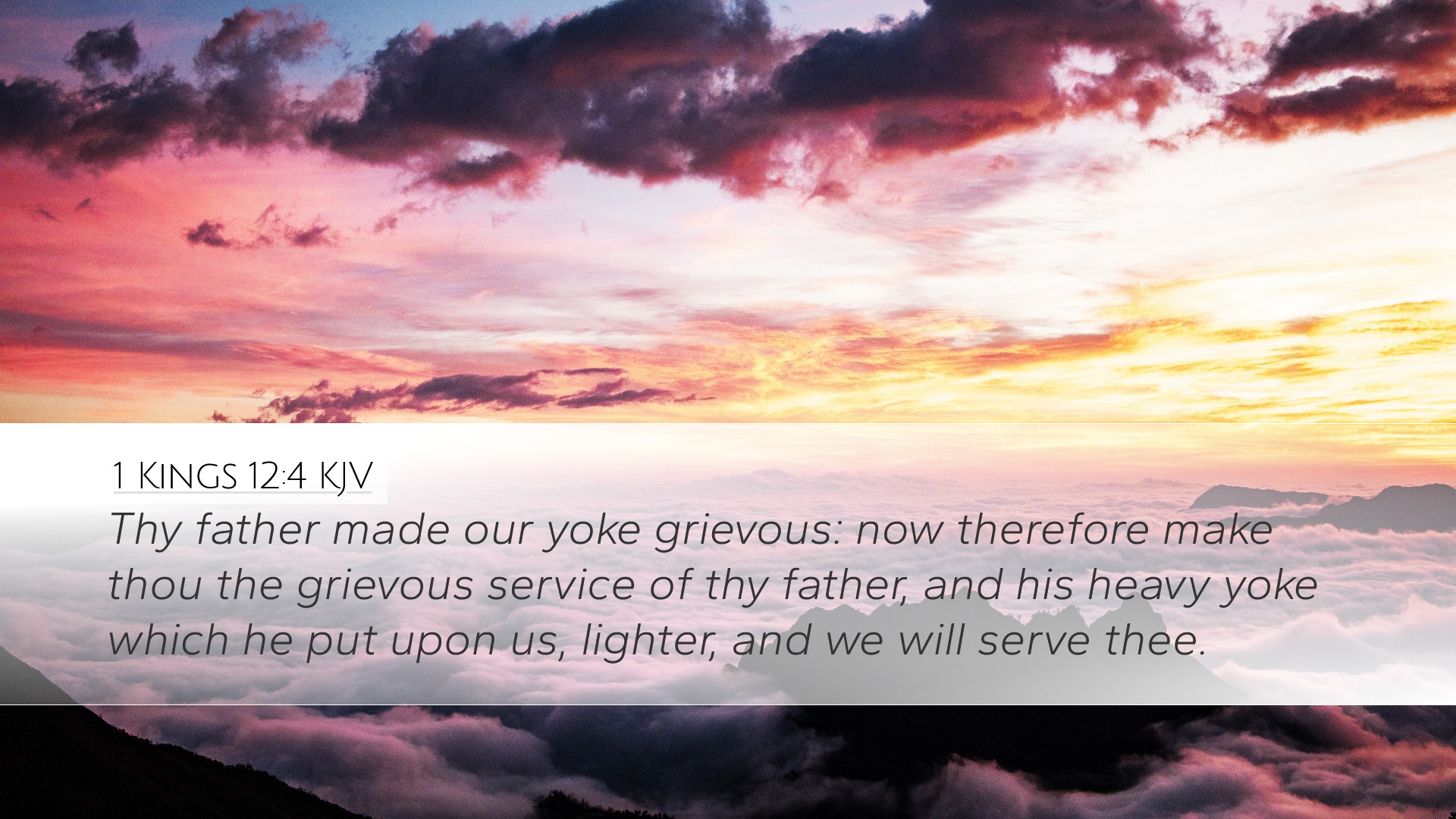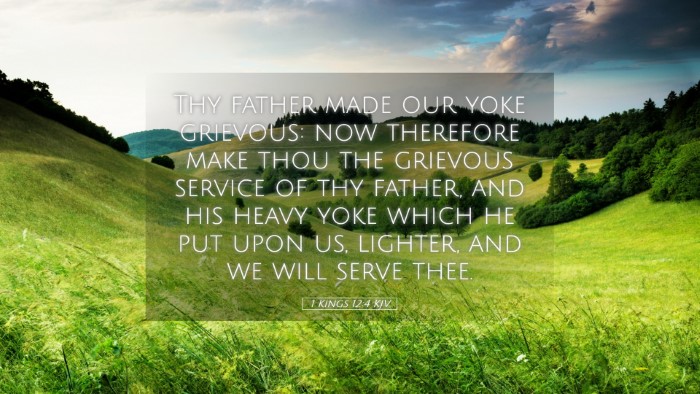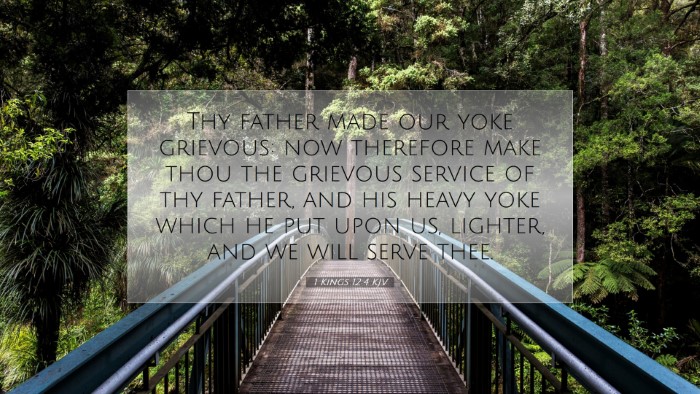Commentary on 1 Kings 12:4
Verse: "Your father made our yoke heavy, now therefore lighten the hard service of your father, and his heavy yoke on us, and we will serve you." (1 Kings 12:4, ESV)
Introduction
This critical verse occurs in the context of Rehoboam's ascension to the throne of Israel after the death of Solomon. The plea made by the people encapsulates the tension between rulers and their subjects—a dynamic that reverberates throughout the Scriptures. Such themes are essential for understanding governance, authority, and the people's role in seeking relief from burdensome leadership.
The Context of the Request
In the previous chapters, we read about the wisdom of Solomon and the grandeur of his reign, but also of the labor and taxes imposed on the people to sustain his extravagant building projects, including the temple and his own palace. As Rehoboam steps into leadership, he is confronted with the burdensome legacy of his father. The request for lighter burdens signals a significant turning point in Israel's history.
Historical Perspective
According to Matthew Henry's Commentary, the remembrance of Solomon's heavy yoke is critical in interpreting the people's desires. The novelty of Rehoboam's rule comes with expectations that must be navigated carefully. The historical context underscores the growing unrest among the tribes of Israel.
The Nature of the Yoke
The term "yoke" often symbolizes bondage or oppression. In this passage, it speaks to the taxation and labor imposed upon the Israelites. Albert Barnes notes that the “heavy yoke” refers to the burdensome duties placed upon the people, reflecting a common ancient Near Eastern dynamic where kings often exploited their subjects for their own gain.
Spiritual Implications
The appeal to lighten the yoke can be seen as a reflection of a deeper spiritual yearning for relief and restoration. The people's cry can symbolize humanity's broader plea for redemption from the burdens of sin and the desire for a gentle, shepherding kind of leadership. Adam Clarke suggests this distress leads to a pivotal moment of choosing leadership that is either merciful or tyrannical.
Rehoboam's Response: A Test of Wisdom
The response of Rehoboam to this request showcases a critical moment in leadership. The decision he makes not only affects his reign but also the future of Israel. It serves as a reflection of the wisdom or folly he will exhibit as a leader.
Seeking Counsel
Both the advice drawn from the elders who served Solomon and the peers of Rehoboam offer contrasting perspectives on leadership. Matthew Henry emphasizes the importance of seeking wise counsel, highlighting how the older men’s advice—to serve the people and to speak kindly—was rooted in wisdom gained from experience.
Relevance to Contemporary Leadership
For pastors and leaders today, this account underscores the value of humility and listening to the needs of the congregation. The pastoral role is inherently to aim for the spiritual and practical well-being of those they lead, aligning closely with the call to lighten burdens as seen in Jesus' teachings (Matthew 11:28-30).
The People’s Perspective and Expectations
The people’s expectations for a more lenient rule reflect their past grievances and aspirations for a better future. They sought a leader who could alleviate their suffering, a search not dissimilar from what people seek in spiritual leaders today.
Lessons on Expectations
This narrative teaches an important lesson: expectations can shape governance. Albert Barnes articulates that the people's desires are not merely for relief but for a transformation in how they relate to their king. Their plea invites leaders to consider the relational dynamic inherent in governance—a reminder that authority must be just and compassionate.
Conclusion: The Implications of Heavy Yoke
1 Kings 12:4 represents more than a plea for relief; it embodies a theological and communal reflection on authority, suffering, and the prospect of renewal. The plea to lighten the yoke carries both social and spiritual weight, echoing the Biblical call to justice, mercy, and humility in leadership.
Practical Application
- Leaders should always be attentive to the needs and voices of those they serve, recognizing the burden that authority can impose.
- Wise counsel from both seasoned elders and the community can guide decisions that affect many lives.
- This narrative challenges modern leaders to create environments where the populace feels heard and valued.
Final Reflection
As we contemplate this verse, let us ask ourselves as leaders and believers: how do we respond to the burdens of those around us? Are our yokes light or heavy? May we strive to embody the wisdom that brings healing and restoration, fulfilling the Lord’s command to love not just with words, but through tangible acts of service.


